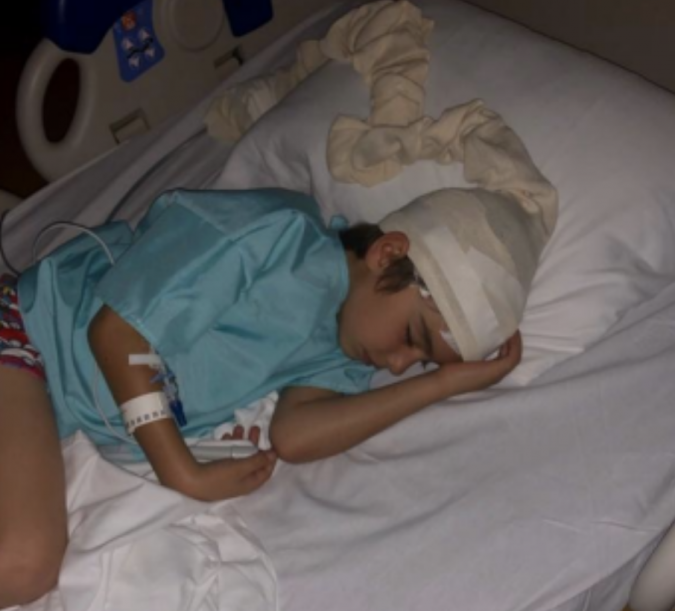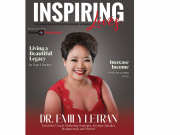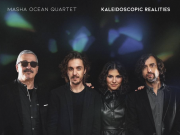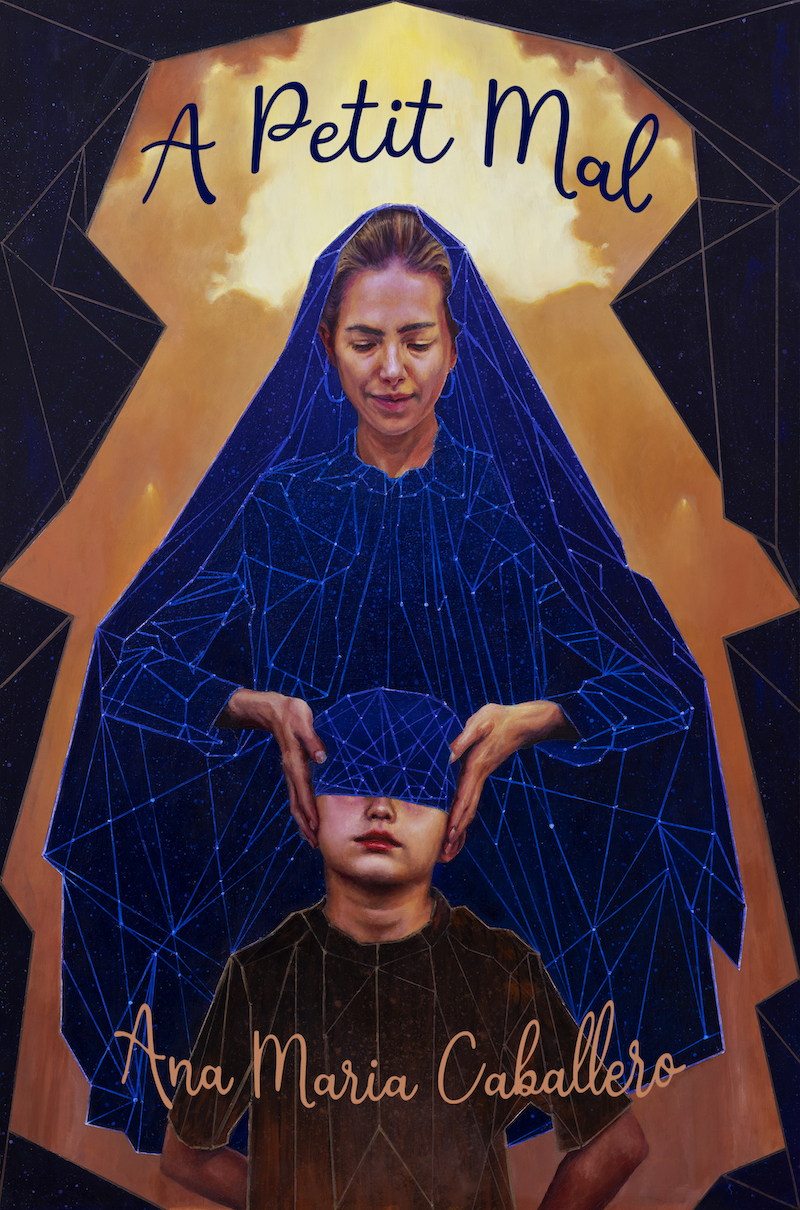(From A Petit Mal: A Mother’s Healing Love Song by Ana María Caballero, published in 2023 by The Black Spring Press Group. Reprinted with permission.)
In ER, we are seen by French doctor, which is unusual and relevant because doctor asks boy if he likes any French soccer teams. Boy is wearing Italian soccer jersey.
Yes, Paris Saint-Germain, boy says.
Ah, doctor says, you like PSG. And you also like Juventus, ah.
Boy is wearing soccer jersey with the number and name of Juan Guillermo Cuadrado, a well-known Colombian striker who plays for Juventus, a team from Italian city of Turin.
Yes.
French doctor asks, is Cuadrado still alive.
The French doctor is making a dark joke: is Cuadrado still alive. This question is a joke. A question asked because a Colombian soccer player was murdered nearly thirty years ago as gruesome, ghastly punishment for scoring a self-goal in a world cup. The 1994 Italian World Cup. My husband, boy, I are Colombian. A fact we had already shared with doctor.
All this important because boy laughs, but the joke, the question, is not funny. The doctor’s joke is not funny. Not even bad funny. Perhaps uncomfortable funny, perhaps uncanny inappropriate funny, perhaps adult offensive funny. But not kid funny, and boy laughs, boy who does not, I am certain, recognize joke. Boy laughs a lot.
My voice: it’s happening.
And he, emergency room pediatric doctor who recognizes he should not have said what he just said knows, too, that “it” is happening. Doctor orders CT Scan.
Vs.
The power by which CT Scan is ordered. The years of school. The decades. Position earned via disproportionate time on foot. Other children in other ER rooms. Other bad jokes. Other silences. Other bursts of laughter.
Give this child scan, this, not that. Boy laughs loud: laughs a laugh that is off. Silence does not equal scan.
Vs.
The CT Scan is clear. No, not clear. It is “unremarkable.” Medically, clinically, unremarkable is what bedside prayers are made of. Unremarkable boy under the unquiet, disquiet whir of CT Scan. What’s more, the report goes—
“The globes and orbits appear within normal limits.”
Normal globes, normal orbits, normal limits within boundaries of boy. An incidental finding: scan reveals empty sella turcica. The doctors try to explain.1 An extra molar. A difference in eye color. Discolored nipples. No, they don’t mention nipples. I mention it to myself inside my head to try to comprehend “incidental” in terms of body. My high-school best-friend’s incidentally humungous nipples. Incidental is not what bedside prayers are made of. It is vague. Why mention it. Incidentally your boy, your boy in ER, has empty sella in brain. Should the sella be half-empty, doctor. Or, rather, half-full.
 I go online. Doctors insist, do not go online. Online, I learn. Reputable websites belonging to reputable hospitals. I avoid forums, incidentally, at all cost. An empty sella refers to a cavity, the sella turcica, that is actually full of cerebrospinal fluid in base of skull. In Latin, sella turcica means Turkish seat. The sella a seat for the pituitary gland, headquarters of hormone production. Online it says that this is what doctors think, what doctors consider, imagine, believe.
I go online. Doctors insist, do not go online. Online, I learn. Reputable websites belonging to reputable hospitals. I avoid forums, incidentally, at all cost. An empty sella refers to a cavity, the sella turcica, that is actually full of cerebrospinal fluid in base of skull. In Latin, sella turcica means Turkish seat. The sella a seat for the pituitary gland, headquarters of hormone production. Online it says that this is what doctors think, what doctors consider, imagine, believe.
An online search for Turkish seat yields billions of images of ultra-low rectangular loveseats covered in mostly red fabrics. Another billion images of seats in Turkish Airlines. Nothing summons cavity.
Who names the lesser parts of body. A Turkish seat buried within brain of boy. Visible by lamplight of CT Scan. Incidental, but not unremarkably so.
Vs.
We are admitted.
Vs.
Two new books inside the parked car.
Vs.
I am familiar with hospital because of recently. A friend who is a recent friend has a baby, baby Anaya, recently diagnosed with cancer. With stage four neuroblastoma. Baby is eighteen months when diagnosed. Cancer is in brain, in abdomen, in marrow of her bones. Anaya whose name resembles mine. Whose name also recalls place in paternal grandparent’s native land of Lebanon. Place where grandparents are, incidentally, when diagnosis is received by them via call.
1 They are bad at explaining, I find.
My friend terms hospital The Terminal because being there is like being at airport, eternally, with baby. Entertaining while waiting for something other to happen, to arrive, to land upon. For example: insertion of substance. For example: analysis of change of rate of heart, composition of blood, increase of temperature, result of exam delivered by physician on call, person with decades of school, proven to be good at withstanding hours of thinking while standing up.
There is really good coffee on ground floor. A café that makes Starbucks lattes. There, beyond unnamed reality of medical, clinical truth, lives the day-to-day. The unremarkable day-to-day. Different from truth of what may come, of what may land upon, of what’s to arrive, but has not yet come. Good coffee a stated fact, substance inserted, absolute: Grande Latte in your hand. Truth that requires no physical scan.
Vs.
The hospital coffee shop that somehow is and is not Starbucks is closed on Sunday, which is my first morning waking up in hospital. So, I am sent to other coffee vendor in hospital that is open but has bad coffee.
Boy, of course, still upstairs. Still asleep. Still hooked up by twenty-four very thin color cables to EEG.
Vs.
Incidentally, “epilepsy” is not a friendly word.
Vs.
I am not sad because boy is getting EEG. I am grateful he is granted EEG. The bed/couch that serves as bed for accompanying parent in hospital was/is fine. I read a lot of pages from one of my books. This book is pretty good, maybe even unmodifier/unmodified good. But the coffee is bad, and I am not awake. Not like I know from intuition of parent, of animal parent, that I want to be, ought to be, awake. This annoys me.
I am annoyed when husband calls and asks about boy. I say boy is fine. I ask husband to come quick and bring good coffee quick. I do not speak nicely. This makes husband think boy is not fine. I see myself not rising to the occasion. But seeing the not rising does not make me rise. I cannot rise because I am not awake. Because I am bad like bad coffee.
Boy is fine, I say. Please come soon. Please bring good coffee.
Words spoken on first morning at hospital. It makes no sense. I am impatient. I am annoyed. I do not feel sad. I am annoyed: I hold on to day-to-day. Annoyance of husband, of my one single husband, a man so singularly named, who answers to proper combined nouns of Nelson David. I do not wish to be disturbed. I hold on to day-to-day.
Learn more about Ana María & A Petit Mal.





































